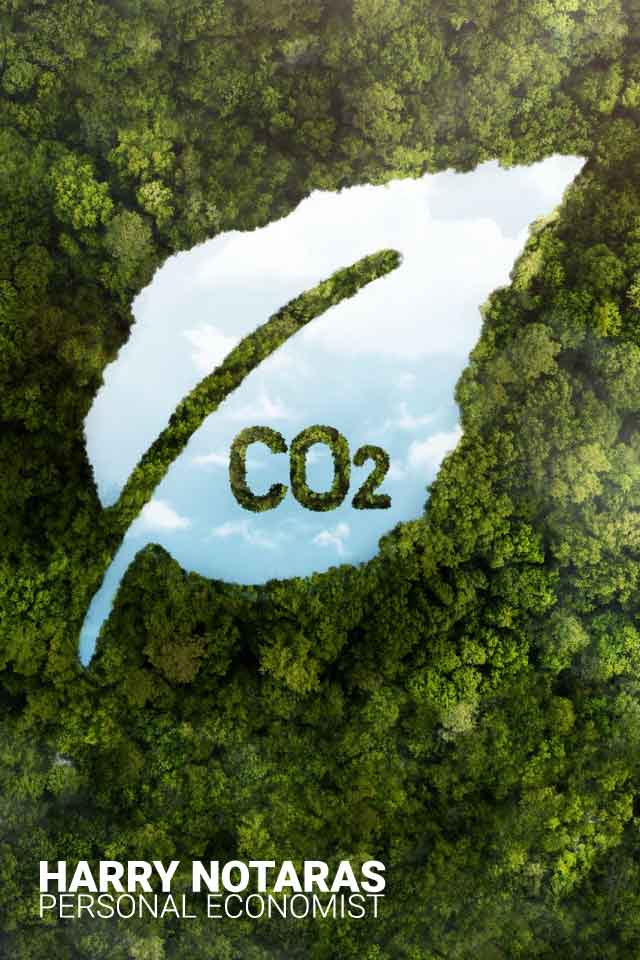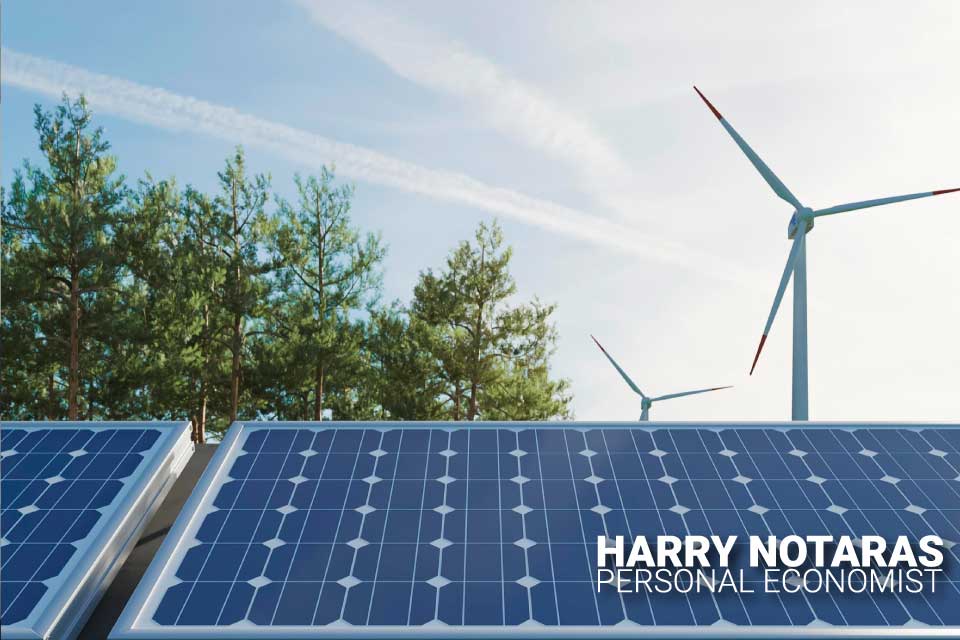The Energy Transition – The State of Play
The energy transition is a term that describes the path away from using fossil fuels such as oil, coal and gas to produce energy. Energy is required to run our transport, industrial, household and other energy-using sectors. It is the basis of our ongoing prosperity so mishandling this transition would be costly to our standard of living.
Climate change is the driver of the energy transition. There is still a great deal of scepticism about climate change, however, the argument, if not the debate, has largely been won by those who attribute it to the release of carbon from the burning of fossil fuels. While history will eventually confirm or refute this victory, for now, we are operating as if it is true.
The release of carbon into the atmosphere through the burning of fossil fuels is what economists call a negative externality. In this case, it is a cost caused by the user of the energy that is not borne by that user. The climate-changing carbon is emitted without charge.
There are a couple of solutions to this that economists posit. One is to charge a price for the emission. This price is usually quoted in dollars per ton of CO2. The discussion around this has been distorted to the extent that no rational outcome can be reached. The reason is that the price would be levied by the government and that means it is called a tax. In this case, a carbon tax.
The Price Of Carbon
A carbon tax is a very powerful tool. Perhaps too powerful. It operates using the price mechanism and if the wrong price is levied there can be very powerful overreactions. It is market manipulation of the highest order and fixing a price for any commodity will inevitably bring shortages or gluts of the commodity.
These taxes are good at raising revenue. Look at the GST which is a tax on the consumption of nearly everything. The GST provides less distortion because it is levied on nearly everything evenly. A carbon tax is aimed at distortion and its pricing is inherently more difficult in a political economy.
An example of this is playing out currently in the market for accommodation. Supply is limited and demand is strong, so prices have climbed. Prices have rationed the supply to those with the greatest demand depending on the ability to pay. A move to control prices, as has been offered by the Greens in their rent control arguments will cause shortages without any signal to the market to increase supply in current circumstances.
Remedies should be aimed at supply like build-to-rent strategies and demand like sensible immigration policies rather than regulating the price.
The Price Mechanism
In the energy transition, it is better to work on the supply and demand for carbon and let the price sort itself out. Especially since we have an idea of the level of carbon we can support. If we implement rules that affect this equilibrium, we can let the price determine itself.
The mechanism to do that would be a cap-and-trade model of controlling carbon emissions.
This is where the amount of carbon that can be released in each time period is determined and the right to emit the carbon is purchased by the emitters. Bidding will occur so that the most valuable activities that produce carbon emissions are undertaken with less valuable activities priced out.
This quota of allowable carbon emission in the energy transition can be managed over time in order to reach the desired outcome. This can even produce incentives for carbon abatement by entities undertaking activities that produce no carbon.
Prohibition and Protectionism
What we have instead is prohibition which is just protectionism in reverse. It involves the government picking areas and methods of intervention in markets that render the price signal very opaque.
There are constant calculations of implied carbon costs by different agents in order to help them make decisions regarding the production of carbon. The opacity of this exercise renders the market far less efficient than it could be.
The more sophisticated an economy is and the more complicated the interventions, the greater the difficulty. We have managed to fall into the trap like that which bought an end to communism. The need to adopt command and control methods during the energy transition to ensure that carbon reduction quotas are reached has harmed the ability of the price mechanism to work. signal Market participants are obscured from seeing what the most sensible activity is to undertake or avoid.
The relegation of the price mechanism to second place has bought about the strangling encroachment of government regulation into all parts of our lives. It is rife with unintended consequences and moves the competitive contest around production and consumption decisions into the political one of ‘Not In My Back Yard’.
Propaganda Is Not A Plan
The energy transition is embroiled in a debate of emotion rather than rational argument. Propaganda has become the plan to reach a legislated target of net zero carbon rather than an evaluation of all the possible pathways. This rational consideration has been sidelined because the price mechanism has been buried under the weight of government regulation and government finance.
We have come to rely on the government to get things done and they have proven themselves unable to project manage in the order of magnitude that is required. Examples of this are the Snowy Hydro 2 scheme and the building of infrastructure like toll roads or stadiums which all come in way over budget by factors that would not be tolerated in the private sector.
As time goes on it is becoming clearer that the energy transition is going to be far more costly than anyone had anticipated but that it may eventually lead to comprehensive failure and a colossal waste of resources, mostly because we did not listen to the signals that markets may have provided us.
Instead, the energy transition has been handled by people who want to be seen as doing something historic. What it really needs is to be run by people who just want to get things done in the least disruptive way possible. By listening to the signals that the price mechanism is so capable of sending if we were just prepared to listen.
The energy transition is important
The energy transition is important to Australia and its economic development. It ranks with the economic benefits that will flow from our defence links via AUKUS. I have written an article on my site, “Hunting Business Sales and Valuations” called “Business Opportunities in Australia 2023”. Why not take this opportunity to have a read?
Further Discussions
For a discussion around the energy transition in Australia from a more official point of view, read this “executive summary from the IEA (2023), Australia 2023, IEA, Paris”.
More Reading
If you found this article interesting, maybe you would enjoy reading another article I have written called “The Reserve Bank of Australia set up to fail”.




3 Responses